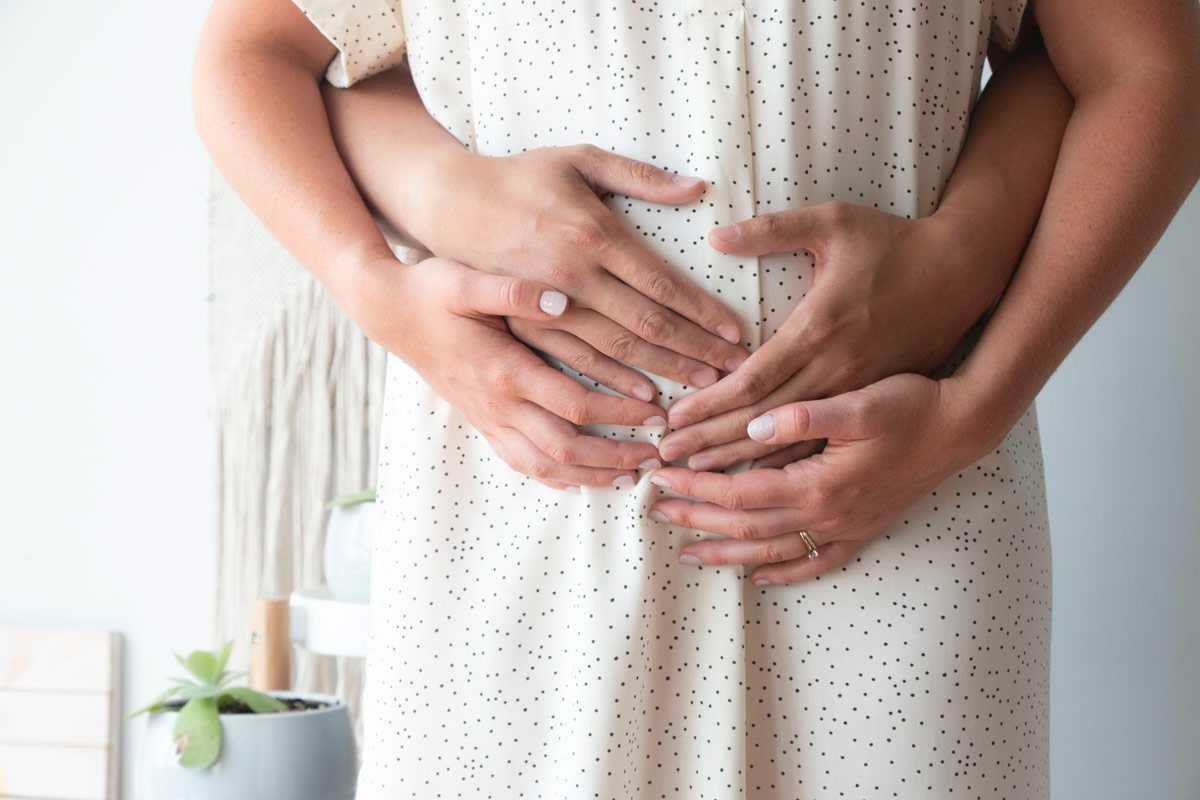Many women dream of starting or expanding their family. And while some achieve this without any problem, unfortunately, a growing number of women are struggling to get pregnant and suffering from female infertility.
If you’ve been trying to get pregnant for a while, you may wonder when it is best to see your GP or a fertility doctor about your fertility. The answer is that it varies. Generally speaking, if you have been trying for 12 months without getting pregnant, or have experienced multiple miscarriages, it’s time to seek help. However, if you are over 35, or have a known condition that could impact your fertility, you should seek advice much sooner.
There are many causes of female infertility, but they can roughly be grouped into four areas:
Ovulation disorders
Ovulation is a vital factor in becoming pregnant naturally. When a woman ovulates, an egg is released from the ovaries, and this travels down the fallopian tube and into the uterus where it will meet sperm and can go on to develop into a pregnancy. Having an ovulation disorder refers to when this ovulation process is disrupted.
Ovulation disorders can commonly be caused by a condition called Polycystic Ovary Syndrome (PCOS). PCOS is when small cysts grow on the ovaries, impacting the release of the eggs. This can mean ovulation is very irregular and/or cycles can last months, happen sporadically, or not at all.
A hormonal imbalance is another reason ovulation may not be happening as expected. Hormones are responsible for signalling the body to release an egg every menstrual cycle. If they are imbalanced (perhaps too much or too little of one or multiple hormones), they may not be triggering the release of the egg as they should. The result is that ovulation may be infrequent and irregular, making it harder to work out the fertile window (the best time for having sex when trying for a baby).
And remember, the stress hormone cortisol can also indirectly impact ovulation, as can being extremely underweight or overweight.
Underlying health conditions
There is often an underlying health condition behind an infertility diagnosis. The good news is that there is usually some kind of treatment available to help. Let’s take a look at some common conditions that impact fertility:
Pelvic inflammatory disease (PID): PID can be caused by harmful bacteria from gonorrhoea or chlamydia, and can cause scarring that prevents the egg from getting through the fallopian tubes. PID can not only affect fertility but can also increase the risks associated with pregnancy.
Endometriosis: Although this doesn’t directly cause infertility, it can affect the ovaries and fallopian tubes, making it much harder to get pregnant. Endometriosis is a debilitating disease caused by the uterine lining growing outside of the uterus in other parts of the body.
Fibroids: This is the name for a very common tumour found in women and can impact the ability to carry a baby to term, in addition to causing issues becoming pregnant. Fibroids can make it more difficult for an embryo to attach to the uterus, and for the uterus to support pregnancy.
Poor ovarian reserve
Each month when an egg is released from the ovaries, the egg comes from the ovarian reserve, the finite store of eggs a woman has. Unfortunately, there are instances when the number of eggs is low. Women over the age of 40 naturally have far fewer eggs in their ovarian reserve than a woman under 40, which is why they will find it much harder to get pregnant.
Premature Ovarian Insufficiency (POI), also referred to as premature ovarian failure, is the name given to a condition when a woman’s ovaries stop working before the age of 45. In many cases, the cause is unknown, but it is thought that certain genetic disorders, autoimmune diseases, chemotherapy or radiation, and metabolic disorders could be influencing factors.
Damage to the reproductive system
Environmental toxins, radiation, and chemotherapy can all damage the reproductive system, making natural conception difficult and in many cases, impossible.
The female reproductive system can also be damaged by scarring caused by surgeries. Uterine scarring impacts the blood flow to the endometrial lining which can make it difficult for an embryo to implant. Scar tissue can also block the tiny opening to the fallopian tubes, making it a challenge for the egg to get through. Most injuries happen through surgery, for example, a C-section, or any surgery on the reproductive system..
Finding a fertility clinic
It’s really useful to be informed about the causes of infertility if you’ve been trying for a baby without success. But really, the best thing you could do is to seek advice from a fertility specialist at the earliest opportunity if you have any suspicion there could be something wrong.
Looking for the best fertility clinic in London? Fear not, the City is packed with some of the world’s finest fertility clinics and doctors, and you’re bound to find one that is right for you and your fertility journey.
